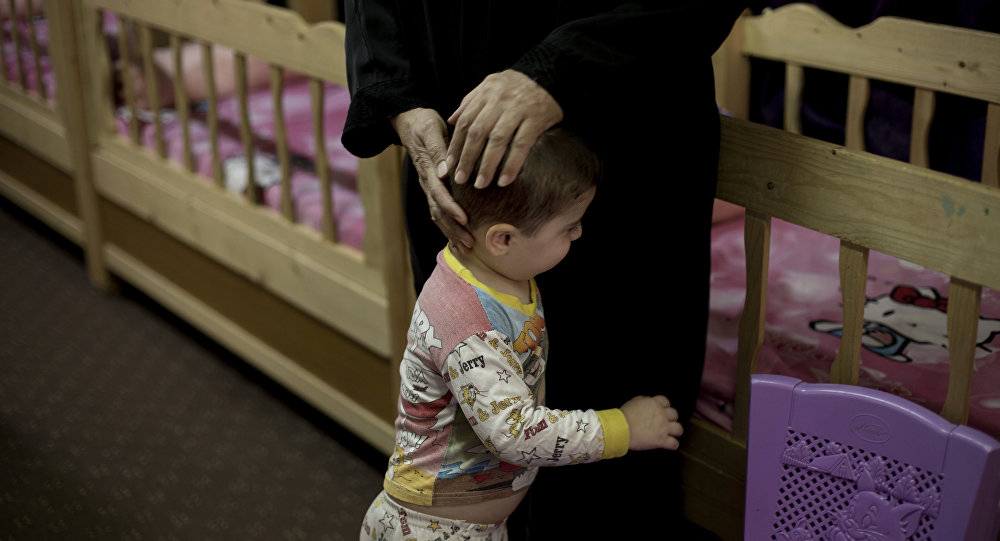The willingness of the Kazakhstani government in recent months to repatriate its citizens captured in Syria was remarkable. Inga Rhonda King, the president of the Economic and Social Council at the United Nations, thinks it is also a roadmap for the future.
“You need to share best practice, while we need to learn from you how to combine these activities with a comprehensive approach to regional cooperation and partnership,” King said while addressing a conference on terrorism-related experiences in the developing world held in New York on Saturday, according to reports by 24Khabar.
The one-day event was held under the auspices of the UN Office of Counter-Terrorism, and focused coordinating joint efforts to effectively combat terrorism at the national, regional and global levels. Kazakhstan’s experiences were highlighted as a case study.
Kazakhstan is among the few countries that have repatriated its citizens from war zones, including children, on a large scale.
In May, the government in Nur-Sultan (the capital formerly known as Astana) completed the second stage of a humanitarian rescue operation code-named Zhusan, which in Kazakh means “bitter wormwood.” At least 231 people, all citizens of Kazakhstan, were brought back from Syria.
Upon arrival in Kazakhstan, 16 men and four women were detained on suspicion of involvement in terrorist activities led by ISIS, also referred to as “Islamic State,” or IS. They were subsequently transferred to criminal investigation sites in the cities of Nur-Sultan, Atyrau, Aktobe, Uralsk, Karaganda and Shymkent. Along with adults, Kazakhstani security forces evacuated 156 children, mostly pre-school age, of which 18 are orphans.
Aiming to help women and children return to a normal life, rehabilitation centers were launched throughout the country. In addition, lawyers help families recover vital documents and help them get jobs, while theologians work with those returning from combat zones to understand their religion through a non-radical lens.
Aida Sarina, age 25, was among those women who had been brought back to Kazakhstan. Sarina recorded a video message for those attending the meeting in New York, to share her memories of how she came to Syria and how difficult it was to live among the militants.
“We slept on the damp earth in the open air. Every day, children died in the arms of their mothers, and they were unable to help them,” said Sarina in her video message, according to reports by Kazinform.
“When I saw rescuers from Kazakhstan, I realized that we were not abandoned,” she continued. “Next to me there were women from France, Germany and other countries. I remember how jealous they were of us and how they asked us to find out if Kazakhstan could take them, or at least to take their children out of Syria. Then I could not help these women.”
The ongoing conflict in Syria has been attracting thousands of people from different countries, including women, who sometimes support terrorist groups like ISIS, also known as Daesh in Arabic. According to statistical data, 13 percent of 41,490 foreign citizens that became affiliated with ISIS between 2013 and 2018 were women, while 12 percent were minors.
Meanwhile, about 390 Kazakhstani minors were found in combat zones in Syria and Iraq as of late 2017. Kazakhstani citizens who were recruited by militants left for Afghanistan, Iraq and Syria between 2012 and 2015.
Officials in Nur-Sultan say it is impossible to calculate the exact number of those who left, as these people often leave the country without documents and join extremists after passing three or four international borders.







 Russian peacekeeping forces, deployed in the Karabakh (Garabagh) region of Azerbaijan since 2020, have commenced their withdrawal from the area.
Russian peacekeeping forces, deployed in the Karabakh (Garabagh) region of Azerbaijan since 2020, have commenced their withdrawal from the area.
 The Islamic holy month of fasting, Ramadan comes to an end this week with the celebration of a joyous festival called Eid (meaning “festival” in Ar...
The Islamic holy month of fasting, Ramadan comes to an end this week with the celebration of a joyous festival called Eid (meaning “festival” in Ar...
 Azerbaijan officially unveiled the logo for the upcoming 29th session of the Conference of the Parties to the United Nations Framework Convention o...
Azerbaijan officially unveiled the logo for the upcoming 29th session of the Conference of the Parties to the United Nations Framework Convention o...
 Iranian President Ebrahim Raisi warned Israel that it would face a "real and extensive" response if it makes any "mistake" following Tehran’s missi...
Iranian President Ebrahim Raisi warned Israel that it would face a "real and extensive" response if it makes any "mistake" following Tehran’s missi...



